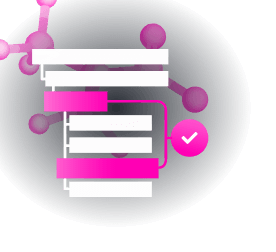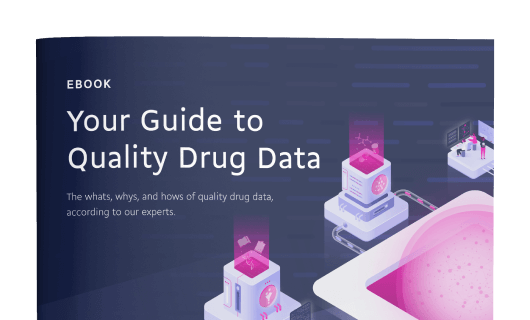Explore a selection of our essential drug information below, or:
Identification
- Generic Name
- SGN-30
- DrugBank Accession Number
- DB05471
- Background
SGN-30 is an engineered monoclonal antibody (mAb) that reacts with significant affinity to the CD30 antigen, which is highly expressed on a variety of hematologic malignancies as compared to on normal cells. SGN-30 has been shown to induce direct anti-cancer activity towards tumor cells expressing CD30 and is undergoing phase II trials for cancer therapy. SGN-30 has demonstrated objective antitumor responses as a single agent in phase II clinical trials. We are collaborating with the National Cancer Institute (NCI) on three clinical trials of SGN-30 in combination with chemotherapy for the treatment of relapsed Hodgkin lymphoma, front-line ALCL and pediatric ALCL.
SGN-30 received orphan drug designation from the FDA in July 2003 for Hodgkin lymphoma and in February 2004 for T-cell lymphomas.
- Type
- Biotech
- Groups
- Investigational
- Biologic Classification
- Protein Based Therapies
Other protein based therapies - Protein Chemical Formula
- Not Available
- Protein Average Weight
- Not Available
- Sequences
- Not Available
- Synonyms
- SGN 30
- SGN30
Pharmacology
- Indication
Investigated for use/treatment in autoimmune diseases, cancer/tumors (unspecified), lymphoma (non-hodgkin's), and lymphoma (unspecified).
 Reduce drug development failure ratesBuild, train, & validate machine-learning modelswith evidence-based and structured datasets.Build, train, & validate predictive machine-learning models with structured datasets.
Reduce drug development failure ratesBuild, train, & validate machine-learning modelswith evidence-based and structured datasets.Build, train, & validate predictive machine-learning models with structured datasets.- Contraindications & Blackbox Warnings
 Prevent Adverse Drug Events TodayTap into our Clinical API for life-saving information on contraindications & blackbox warnings, population restrictions, harmful risks, & more.Avoid life-threatening adverse drug events with our Clinical API
Prevent Adverse Drug Events TodayTap into our Clinical API for life-saving information on contraindications & blackbox warnings, population restrictions, harmful risks, & more.Avoid life-threatening adverse drug events with our Clinical API- Pharmacodynamics
SGN-30, a monoclonal antibody with activity against CD30+ malignancies. Through investigation of the mechanisms underlying SGN-30's antitumor activity, SGN-30 treatment was found to activate NF-kappaB and modulation of several messages including the growth regulator p21WAF1/CIP1 (p21) and cellular adhesion marker ICAM-1. p21 protein level changes are believed to be associated with arresting cell growth.
In addition to directly killing cancerous cells, SGN-30 affects growth arrest and drug sensitization through growth regulating and proapoptotic machinery. SGN-30 could therefore be used to increase the efficacy of standard chemotherapies used to treat patients with CD30+ malignancies.
- Mechanism of action
Through investigation of the mechanisms underlying SGN-30's antitumor activity, SGN-30 treatment was found to activate NF-kappaB and modulation of several messages including the growth regulator p21WAF1/CIP1 (p21) and cellular adhesion marker ICAM-1. p21 protein level changes are believed to be associated with arresting cell growth.
Target Actions Organism UNuclear factor NF-kappa-B p105 subunit Not Available Humans UNuclear factor NF-kappa-B p100 subunit Not Available Humans - Absorption
Not Available
- Volume of distribution
Not Available
- Protein binding
Not Available
- Metabolism
- Not Available
- Route of elimination
Not Available
- Half-life
Not Available
- Clearance
Not Available
- Adverse Effects
 Improve decision support & research outcomesWith structured adverse effects data, including: blackbox warnings, adverse reactions, warning & precautions, & incidence rates. View sample adverse effects data in our new Data Library!Improve decision support & research outcomes with our structured adverse effects data.
Improve decision support & research outcomesWith structured adverse effects data, including: blackbox warnings, adverse reactions, warning & precautions, & incidence rates. View sample adverse effects data in our new Data Library!Improve decision support & research outcomes with our structured adverse effects data.- Toxicity
Not Available
- Pathways
- Not Available
- Pharmacogenomic Effects/ADRs
- Not Available
Interactions
- Drug Interactions
- This information should not be interpreted without the help of a healthcare provider. If you believe you are experiencing an interaction, contact a healthcare provider immediately. The absence of an interaction does not necessarily mean no interactions exist.Not Available
- Food Interactions
- Not Available
Categories
- Drug Categories
- Not Available
- Chemical TaxonomyProvided by Classyfire
- Description
- Not Available
- Kingdom
- Organic Compounds
- Super Class
- Organic Acids
- Class
- Carboxylic Acids and Derivatives
- Sub Class
- Amino Acids, Peptides, and Analogues
- Direct Parent
- Peptides
- Alternative Parents
- Not Available
- Substituents
- Not Available
- Molecular Framework
- Not Available
- External Descriptors
- Not Available
- Affected organisms
- Not Available
Chemical Identifiers
- UNII
- Not Available
- CAS number
- Not Available
References
- General References
- Bartlett NL, Younes A, Carabasi MH, Forero A, Rosenblatt JD, Leonard JP, Bernstein SH, Bociek RG, Lorenz JM, Hart BW, Barton J: A phase 1 multidose study of SGN-30 immunotherapy in patients with refractory or recurrent CD30+ hematologic malignancies. Blood. 2008 Feb 15;111(4):1848-54. Epub 2007 Dec 13. [Article]
- Oflazoglu E, Stone IJ, Gordon KA, Grewal IS, van Rooijen N, Law CL, Gerber HP: Macrophages contribute to the antitumor activity of the anti-CD30 antibody SGN-30. Blood. 2007 Dec 15;110(13):4370-2. Epub 2007 Oct 1. [Article]
- Schnell R, Borchmann P: SGN-30 (Seattle genetics). Curr Opin Mol Ther. 2006 Apr;8(2):164-72. [Article]
- Cerveny CG, Law CL, McCormick RS, Lenox JS, Hamblett KJ, Westendorf LE, Yamane AK, Petroziello JM, Francisco JA, Wahl AF: Signaling via the anti-CD30 mAb SGN-30 sensitizes Hodgkin's disease cells to conventional chemotherapeutics. Leukemia. 2005 Sep;19(9):1648-55. [Article]
- Wahl AF, Klussman K, Thompson JD, Chen JH, Francisco LV, Risdon G, Chace DF, Siegall CB, Francisco JA: The anti-CD30 monoclonal antibody SGN-30 promotes growth arrest and DNA fragmentation in vitro and affects antitumor activity in models of Hodgkin's disease. Cancer Res. 2002 Jul 1;62(13):3736-42. [Article]
- External Links
- PubChem Substance
- 347910158
Clinical Trials
- Clinical Trials
Clinical Trial & Rare Diseases Add-on Data Package
Explore 4,000+ rare diseases, orphan drugs & condition pairs, clinical trial why stopped data, & more. Preview package Phase Status Purpose Conditions Count Start Date Why Stopped 100+ additional columns Unlock 175K+ rows when you subscribe.View sample data2 Completed Treatment Adult Lymphocyte Depletion Hodgkin Lymphoma / Adult Lymphocyte Predominant Hodgkin Lymphoma / Adult Mixed Cellularity Hodgkin Lymphoma / Adult Nodular Sclerosis Hodgkin Lymphoma / Recurrent Adult Hodgkin's Lymphoma 1 somestatus stop reason just information to hide 2 Completed Treatment Anaplastic Large Cell Lymphoma 1 somestatus stop reason just information to hide 2 Completed Treatment Lymphoma, Large Cell 1 somestatus stop reason just information to hide 2 Terminated Treatment Anaplastic Large Cell Lymphoma 1 somestatus stop reason just information to hide 1, 2 Completed Treatment B-Cell Lymphoma / Cutaneous T-Cell Lymphoma (CTCL) / Hodgkins Disease (HD) / Kaposi's Sarcoma / Lymphoma, Large Cell 1 somestatus stop reason just information to hide
Pharmacoeconomics
- Manufacturers
- Not Available
- Packagers
- Not Available
- Dosage Forms
- Not Available
- Prices
- Not Available
- Patents
- Not Available
Properties
- State
- Solid
- Experimental Properties
- Not Available
Targets

- Kind
- Protein
- Organism
- Humans
- Pharmacological action
- Unknown
- General Function
- Transcriptional repressor activity, rna polymerase ii transcription regulatory region sequence-specific binding
- Specific Function
- NF-kappa-B is a pleiotropic transcription factor present in almost all cell types and is the endpoint of a series of signal transduction events that are initiated by a vast array of stimuli related...
- Gene Name
- NFKB1
- Uniprot ID
- P19838
- Uniprot Name
- Nuclear factor NF-kappa-B p105 subunit
- Molecular Weight
- 105355.175 Da
- Kind
- Protein
- Organism
- Humans
- Pharmacological action
- Unknown
- General Function
- Transcriptional activator activity, rna polymerase ii core promoter proximal region sequence-specific binding
- Specific Function
- NF-kappa-B is a pleiotropic transcription factor present in almost all cell types and is the endpoint of a series of signal transduction events that are initiated by a vast array of stimuli related...
- Gene Name
- NFKB2
- Uniprot ID
- Q00653
- Uniprot Name
- Nuclear factor NF-kappa-B p100 subunit
- Molecular Weight
- 96748.355 Da
Drug created at November 18, 2007 18:25 / Updated at July 18, 2023 22:56

